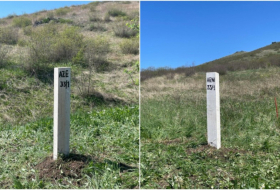At present, British citizens are entitled to travel anywhere in the EU simply by presenting their passport: a French, Spanish or Italian border guard is permitted only to check that the travel document is valid, and yours. Where you plan to go is none of his or her business.
But once the UK leaves the EU, British citizens will become “third country nationals” with no automatic right of admission. While the Brexit negotiations continue, a European initiative is being developed to strengthen the EU’s external borders: the European Travel Information and Authorisation System (ETIAS). Citizens of non-EU countries who do not currently need visas will need to register their details and their intentions online.
Is this all because of Brexit?
No. Work on strengthening the European Union’s external border was already under way before the UK referendum on membership. Once Britain leaves the EU, UK citizens will be covered by the same rules as, for example, Americans and Australians. Each traveller will be required to have an ETIAS, a halfway house between unrestricted entry and the onerous process of applying for a full visa.
How will it work?
The European Union will set up an ETIAS Central Unit, probably in one of the eastern member states. Its website, presumably etias.eu, will be where every prospective visitor to the EU, plus Iceland, Norway, Switzerland and Liechtenstein, will register their details and pay a €5 (£4.50) fee, though under-12s can be registered free. The information will be compared against a number of watchlists, and a decision made on whether or not to grant an ETIAS.
What questions must I answer?
Personal information including name, address, contact details, passport details and occupation (with your job title and employer, or for students, the name of educational establishment). There will also be questions about your state of health, particularly any infectious diseases. You must give details of any convictions in the past 20 years for serious crimes, including those involving terrorism, armed robbery, child pornography, fraud and money laundering, cybercrime, illicit trafficking in endangered animal species, counterfeiting, industrial espionage, arson, racism and xenophobia.
Next, you must say why you are travelling (holiday, business, visiting family, etc), specify the country you will first arrive in and provide the address of your first night’s stay — which will pose a problem for travellers who like to make plans as they go along.
What about people without internet access?
They will be expected to get a friend or family member to make the application for them, in the same way as the online ESTA scheme is mandatory for all foreigners who wish to fly to the US without a visa.
How long will it take for a decision to be made?
The intention is that the vast majority of applications will be approved within a few minutes, but it could take four days: “Within 96 hours from the lodging of an application," says the EU, "the applicant shall receive a notification indicating: (a) whether his or her travel authorisation has been issued or refused, or (b) if that additional information or documentation is requested, and/or the applicant is invited to an interview.” That interview would normally be at a consulate of the first country you intend to visit.
In a case of mistaken identity, will I be able to appeal?
Yes. Details of how to appeal will be included with the notice of rejection.
Once I have an ETIAS, am I guaranteed admission?
No. The present right of free movement will be surrendered when the UK leaves the EU. “Mere possession of a travel authorisation does not confer an automatic right of entry,” warns the draft document. When you arrive in Europe you may be quizzed further about your background and travel intentions. And the fact that you have provided information in advance does not mean you will get fast-tracked at the other end.
Do I need to apply for an ETIAS every time I travel to Europe?
No. The permit will be valid for three years, or until your passport runs out. It is not yet clear whether you will need to go online and announce your travel plans before each visit.
These are just proposals. How likely are they to be adopted?
Work is well advanced and a consensus has been reached. Coreper (the Committee of Permanent Representatives in the European Union) has discussed and approved the proposals, which have now been passed to the European Council (comprising the heads of state or government of the EU nations) with a recommendation for endorsement. It is likely the final outcome will be very close to the present plans.
Surely this is just reverting to the way we were before the UK joined the EU?
No, it is very different. In those days there was no need to do anything other than show up at a border with a valid passport. Now the traveller is required to take action before boarding a plane, train, ship or bus to the EU.
Any other pitfalls?
When the online system comes into operation a wide range of scam sites will doubtless be set up, fishing for hapless travellers who search online for terms such as “etias visa”. They will look plausible but will charge many times the going rate. URLs such as etias-eu.com and etias.co.uk have already been registered.
Some British travellers planning a short-notice trip will inevitably fall foul of the requirement for a passport to be valid for at least three months. Currently, passports are valid for travel anywhere in the European Union up to and including the date of expiry.
The proposals as they currently stand contain another potential hazard: a passport “issued more than 10 years before” does not count. British passports can be valid for 10 years and nine months, which means someone attempting to use their passport with as much as nine months’ validity remaining could be rejected.
When will it take effect?
We don’t know. But for the first six months of the scheme, ETIAS will not be mandatory; it will be a “soft” launch, designed to identify and iron out any flaws. The European Commission will retain an option to extend that period for a further six months.
When the scheme becomes officially compulsory, there will be a further grace period of six months: eligible travellers without an ETIAS will, on one occasion only, be allowed in.
Who will check that I have an ETIAS?
The airline, ferry firm, train operator or coach company you are travelling with. They will be required to verify “that travellers are in possession of a valid travel authorisation”. So you shouldn’t get as far as a European border post without a valid ETIAS.
If you are mistakenly allowed on board without an ETIAS, the proposals warn you will be unceremoniously thrown out: “At the request of the authorities competent to carry out the border checks, the carriers shall be obliged to return the third country nationals to the third country from which they were transported or to the third country which issued the travel document on which they travelled or to any other third country to which they are certain to be admitted,” says the EU.
I am only changing planes in Paris/Amsterdam/Frankfurt before continuing to somewhere outside the EU. Do I need an ETIAS?
Probably not. If you are ticketed through to a third country, and you will be staying “airside” at the airport, there is no need for an ETIAS. But if you have separate bookings, eg easyJet to Amsterdam and KLM onwards, you may not be allowed to board the first flight without an ETIAS. If you are changing airports, eg from Paris Charles de Gaulle to Paris Orly, you will need an ETIAS.
I have an Irish passport. Will I need an ETIAS?
No. Only passport-holders from countries outside the EU and the wider Schengen Area need an ETIAS.
What about travel from Britain to the Republic of Ireland?
Because Ireland is outside the Schengen Area, it is feasible that a compromise could be agreed that allows British travellers to travel there without border formalities, as currently happens. Any UK citizen who intends to visit another EU country from Ireland will need to apply for an ETIAS, which will be checked before onward travel is permitted.
How will the ETIAS scheme work on ferries and cruise ships?
You will not be allowed to board a vessel sailing direct to an EU port unless you have a valid ETIAS (though there may be an exception for journeys across the Irish Sea). This requirement will pose particular challenges for the ferry operators from Dover, since it will introduce another stage to the boarding process. (The same is likely to apply to Eurotunnel between Folkestone and Calais.) Boarding formalities for cruise passengers are unlikely to change. But what is not clear is what happens when a cruise ship on a mostly EU itinerary (eg around the Greek Islands) makes a one-day call outside the EU (eg Turkey or Albania). As the rules stand, it appears that everyone will need to be checked again when the returning to the EU.
How much is the scheme costing?
The EU has assigned almost €100m to the ETIAS project “to ensure its quick and effective development”. That sum will be more than repaid in a single year by British travellers alone, so long as present travel patterns continue.
More about: #Brexit
















































